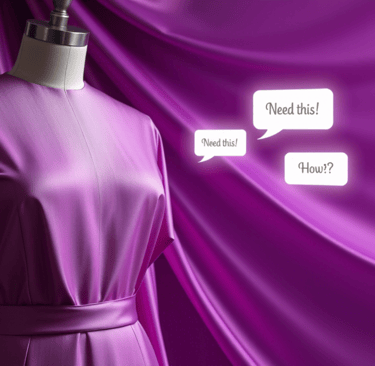The Unseen Script: Crafting Stories That Turn Whispers into Waiting Lists
8/7/20252 min read


In the hushed glow of a Milanese atelier, a master perfumer leans over a crystal flacon, blending essences of oud and bergamot—not for scent, but for memory. Across oceans, in a Tokyo flagship, a client traces fingers over crocodile leather, each stitch whispering of a craftsman’s lifetime. These moments, meticulously staged yet deeply personal, are not accidents. They are chapters in a silent play where luxury brands write stories that do not just captivate but convert.
The alchemy lies in the pivot from object to artifact. A handbag is no longer mere leather and hardware; it becomes the protagonist in a tale of heritage—a 1950s suitcase carried aboard the Orient Express, reimagined for a CEO’s global voyages. A timepiece transforms into a generational heirloom, its ticking a metronome for milestones yet to come. Every texture, scent, and silhouette is a plot point, designed to lodge in the psyche as narrative, not product.
Yet the script is evolving. In an era where attention fractures across screens, luxury’s storytellers face a paradox: how to honor slow, analog legacy while sprinting in the digital agora. The answer emerges in layered acts—a limited-edition collection teased through cryptic Instagram reels, its launch paired with a private AR gallery tracing the design’s lineage back to Art Deco archives. Data whispers subtext: the client who lingers on a video of gemstone-cutting artisans is tagged for an invite to a virtual masterclass, where a jeweler’s chisel becomes a cursor, crafting bespoke pieces in real-time.
Conversion, here, is not a transaction but a threshold crossed. The client who purchases a custom gown after attending its “making-of” documentary isn’t buying silk—they’re buying into a lineage of rebellion, a thread connecting them to avant-garde muses of the 1970s. The click that secures a fragrance isn’t a sale but a signature on an unwritten contract: I, too, am part of this story.
The curtain rises on a new act. In luxury’s theater, the spotlight no longer follows the product but the myth it embodies—and the audience, now cast as protagonists, will pay not to own, but to belong.
